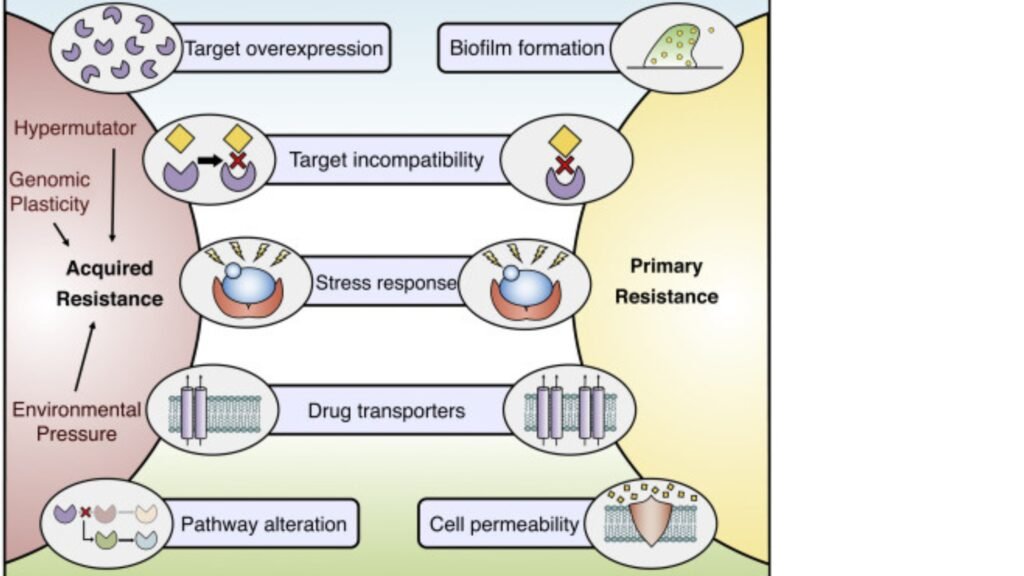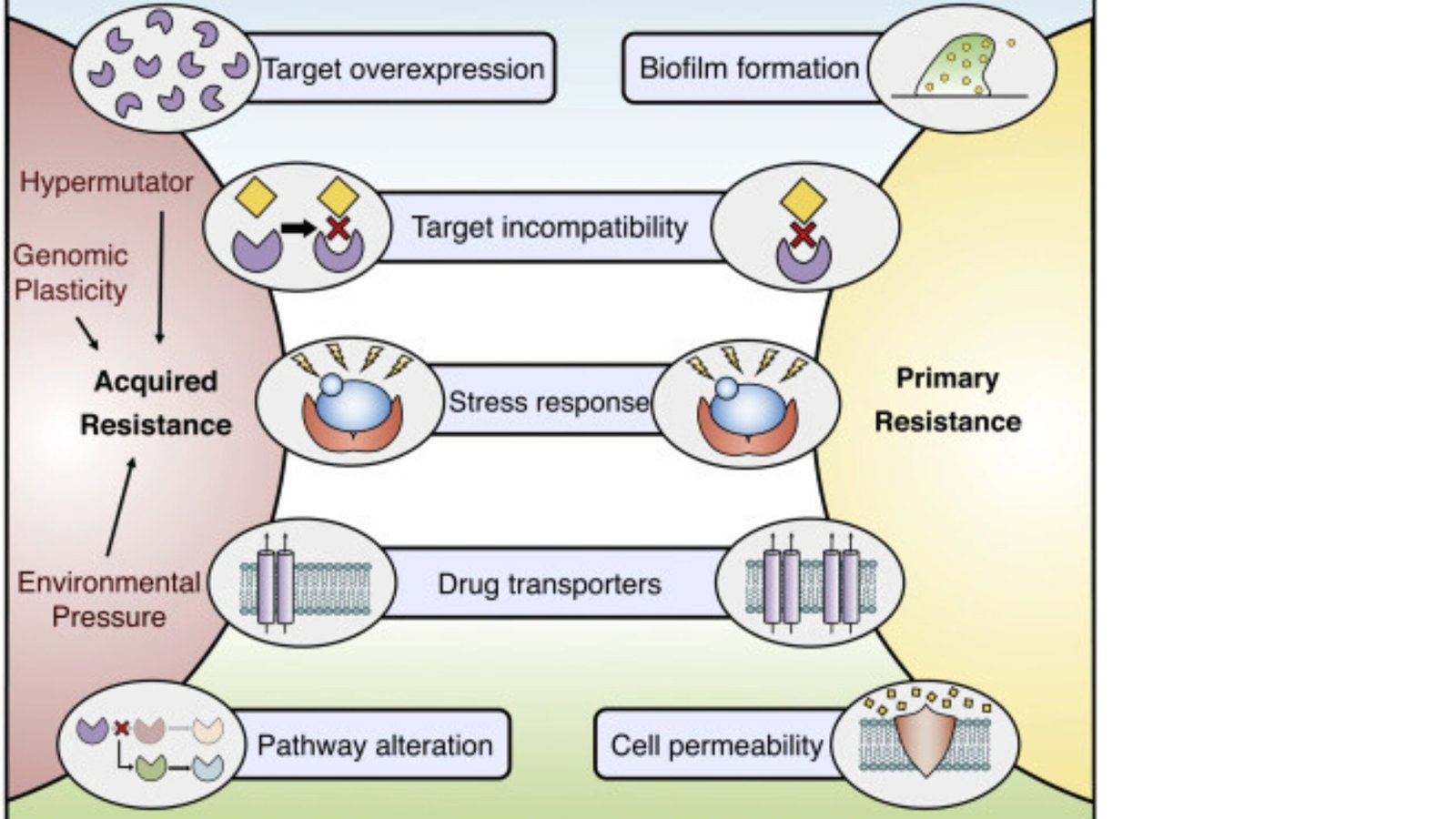Paying attention to antifungal stewardship is crucial when discussing antibiotic stewardship for several reasons. It is just as important as antibiotic stewardship because of the shared mechanisms of resistance between the two classes of drugs, the applicability of similar stewardship principles, and the potential to avoid unnecessary prophylaxis.
The increasing prevalence of antifungal resistance is a global concern, and Pakistan is no exception. A few factors contribute to this issue in the region:
- Over-the-counter availability of antifungal medications can lead to self-medication and misuse without proper medical guidance.
- Limited surveillance systems for antifungal resistance patterns can hinder the understanding of the magnitude of the problem and impede targeted interventions.
- Financial and resource limitations may restrict access to newer and more effective antifungal agents, leading to the overuse of less expensive and potentially less effective drugs.

Antifungal resistance gets hard to combat when its data is not freely available in the public domain due to various reasons, including but not limited to, the lack of comprehensive tracking or reporting mechanisms for antifungal use and resistance patterns. However, anecdotal evidence and localized studies may sometimes highlight the problem of antifungal resistance. For instance, cases of resistance to fluconazole, a common antifungal medication, have been reported in the treatment of invasive candidiasis, according to some hospital-based studies.
It’s important to note that the magnitude of antifungal resistance can lead to challenging treatment scenarios for common infections like candidiasis and aspergillosis, with more severe implications for immunocompromised patients.
The need for responsible antifungal use is critical to prevent the further emergence and spread of resistance. This involves:
- Cultivating awareness among healthcare providers and the public about the prudent use of antifungals.
- Encouraging proper diagnostic practices to ensure appropriate antifungal prescriptions.
- Implementing stewardship programs that can provide guidelines and strategies for the optimal use of antifungals in both hospital and community settings.
In the context of Pakistan, strengthening antifungal stewardship can be an uphill task requiring governmental policy changes, educational programs for healthcare workers, and public awareness campaigns on the dangers of misuse of these medications. Addressing antifungal resistance in Pakistan is crucial, as it poses a significant threat to public health and can compromise the management of fungal infections in our country.
Physicians, pharmacists, and other healthcare workers play pivotal roles in combating antifungal resistance through antifungal stewardship. Their contributions can include:
- Developing Stewardship Programs: Hospitals can establish multidisciplinary antifungal stewardship teams that include infectious disease physicians, pharmacists, microbiologists, and infection control specialists to oversee the use of antifungals.
- Education and Training: Pharmaceutical specialists and healthcare professionals can be educated about the importance of appropriate antifungal use, resistance patterns, and alternative treatment options.
- Optimizing Prescriptions: By ensuring that antifungal prescriptions are given based on proper diagnosis and sensitivity data, pharmaceutical specialists can help personalize therapy to be both effective and limited in scope to prevent resistance.
- Surveillance: Implement systems to monitor and report antifungal utilization and resistance patterns. Promote the use of rapid diagnostic testing to reduce empiric usage of antifungals.

The Centers for Disease Control and Prevention (CDC) lists several strategies that can be adapted for antifungal stewardship, analogous to those for antimicrobial stewardship, including:
- Preauthorization and Prospective Audit with Feedback: Requires preapproval for certain antifungal agents to ensure their appropriate use and conducts regular reviews of ongoing antifungal therapy with feedback to the prescriber.
- Diagnostic Stewardship: Encourages the use of appropriate diagnostic tests and the interpretation of their results to influence clinical decision-making.
- Antifungal Formulary Restrictions: Limits the availability of certain antifungal agents to reduce inappropriate use.
- Dose Optimization: Ensures that dosing strategies are adjusted based on individual patient needs, pharmacokinetic and pharmacodynamic data, and the site of infection to optimize efficacy and minimize toxicity.
Implementing these strategies requires concerted efforts to promote the rational use of antifungals. Healthcare systems should integrate stewardship principles into their policies and electronic health records, emphasizing clinical pathways that standardize care.
The necessity of antifungal stewardship has escalated to critical importance due to the considerable increase in immunocompromised patients, including those with HIV/AIDS, cancer, and transplant recipients, as well as the growing number of invasive fungal infections with limited treatment options due to resistance. Limiting the emergence of antifungal resistance is imperative for maintaining the efficacy of existing treatments. Fungal infections can lead to significant morbidity and mortality, especially when treatment options are few and dwindling due to resistance. Building awareness of this problem is essential among healthcare providers, patients, and the broader community to encourage responsible prescribing and adherence to treatment protocols, thereby protecting the utility of these critical medications for future generations.






